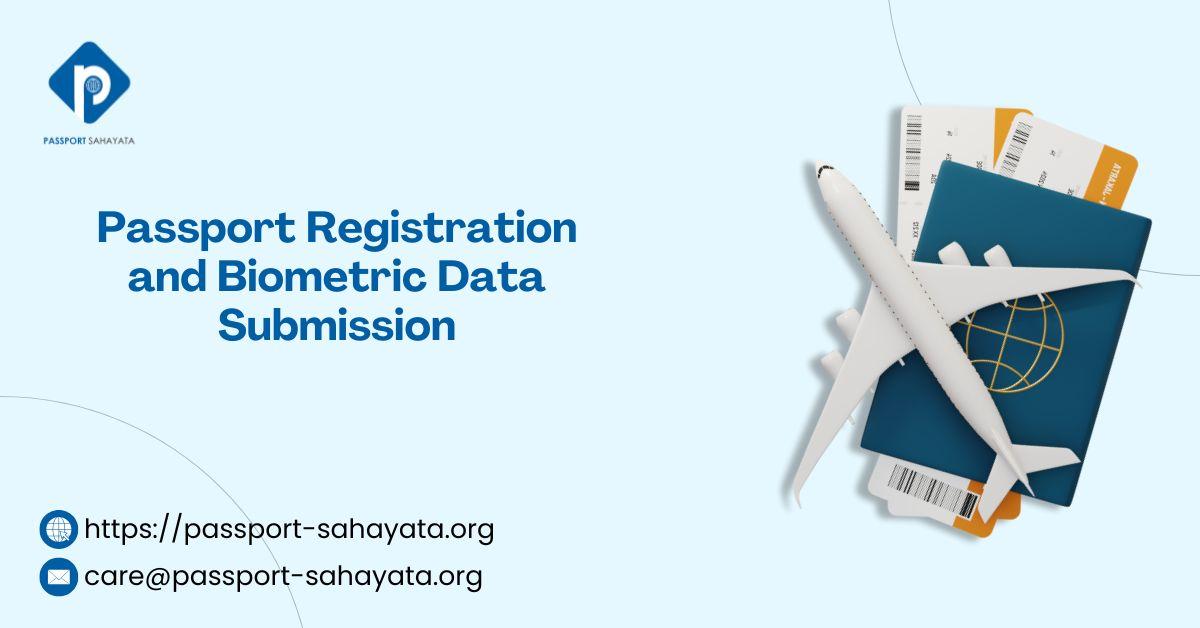Notifications

7 minutes, 59 seconds
-54 Views 0 Comments 0 Likes 0 Reviews

A passport is an essential travel document issued by a government that certifies the identity and nationality of a person for international travel. In today's world, passports have become very important not only for travel but also as a primary identity proof.
To apply for or renew a passport, individuals must go through a process known as passport registration. A key part of this process is the submission of biometric data. Biometric data includes physical or behavioral characteristics such as fingerprints, photographs, and iris scan, which uniquely identify a person.
This guide explains in simple terms what Apply for passport is, what biometric data submission means, why it is necessary, how the process works, and what applicants need to know before and during the process.
Passport registration is the official procedure by which an individual applies to obtain a passport or renew an existing one. This registration involves:
Filling out application forms
Providing personal details such as name, date of birth, address, and nationality
Submitting supporting documents like proof of identity, address, and citizenship
Attending a passport office or applying online through a government portal
Biometric data refers to measurable physical characteristics or behavioral traits that can be used to identify a person uniquely. In the context of passport issuance, the most commonly used biometric data include:
Photograph: A clear, recent photo of the applicant’s face.
Fingerprints: Scanning fingerprints of all fingers or a subset as per the passport authority’s rules.
Iris scan: Scanning the colored ring around the pupil of the eyes (used in some countries).
Signature: Digital capture of the applicant’s signature.
The biometric data helps authorities to establish that the person applying for the passport is indeed who they claim to be and to prevent identity fraud or duplicate passport issuance.
Biometric data submission has become mandatory in many countries due to several reasons:
Biometric data is difficult to forge or duplicate, making it much safer than traditional paper documents alone. It helps reduce the risk of fake or fraudulent passports.
Fingerprint and iris scans provide a precise method to verify the applicant's identity. This prevents multiple passports being issued to the same person under different names.
Global standards set by organizations like the International Civil Aviation Organization (ICAO) recommend biometric passports for international travel. Submitting biometric data helps countries comply with these standards.
At immigration checkpoints, biometric verification can be done quickly and automatically, speeding up passenger processing and improving border security.
By linking passports to unique biometric identifiers, authorities can reduce identity theft and misuse of passports.
In most countries, all applicants applying for a new passport or renewing an existing one must submit biometric data. This includes:
First-time passport applicants
Passport renewal applicants
Minors (usually above a certain age)
Applicants applying for a fresh passport due to lost or damaged passports
The following documents are typically required:
Proof of Identity: Aadhaar card, voter ID, PAN card, or other government-issued ID
Proof of Address: Utility bills, bank statements, rental agreement, or voter ID
Proof of Date of Birth: Birth certificate, school leaving certificate, or any valid document
Citizenship Proof: Usually the identity and address proofs also serve as citizenship proof
Photographs: Recent passport-sized photos (some countries now capture photos digitally at the center)
Other Documents: Depending on the category, documents such as marriage certificate, divorce decree, or parental consent may be required.
Because biometric data is sensitive personal information, authorities take strict measures to protect privacy:
Biometric data is encrypted and stored securely in government databases.
Access is restricted to authorized personnel only.
Data is used solely for passport issuance and verification.
Laws often regulate how biometric data can be collected, stored, and shared.
Applicants should only submit biometric data through official and secure channels.
Biometric verification speeds up identity checks, reducing processing times for passports.
Biometrics reduce errors or fraud, ensuring passports are issued to the correct individuals.
Biometric passports are accepted worldwide and are mandatory for many countries’ visa-free or visa-on-arrival programs.
Travelers benefit from safer passports that are harder to counterfeit or misuse.
At airports and border control, biometric data speeds up immigration checks and makes travel more convenient.
Fingerprint scanners or cameras may sometimes malfunction. Remain patient and cooperate with staff during data capture.
Prepare all required documents in advance and bring originals and copies to avoid delays.
Book appointments well in advance to avoid last-minute issues.
Some countries have special procedures or exemptions for young children or elderly applicants.
Ensure you provide biometric data only to authorized government officials or centers.
Note: Now you can easily apply for Tatkal passport through our website
Passport registration and biometric data submission are crucial steps in the process of obtaining a secure and internationally accepted passport. Biometric data enhances security, prevents identity fraud, and facilitates smooth international travel.
For applicants, understanding the process, preparing necessary documents, and cooperating during biometric data submission can ensure a hassle-free passport application experience.
With the increasing importance of biometrics in identification, it is important to comply with the guidelines and safeguard your personal information.
If you are planning to apply for or renew your passport, start by collecting your documents, completing the application online, booking your appointment, and preparing for biometric data submission at the passport center.

